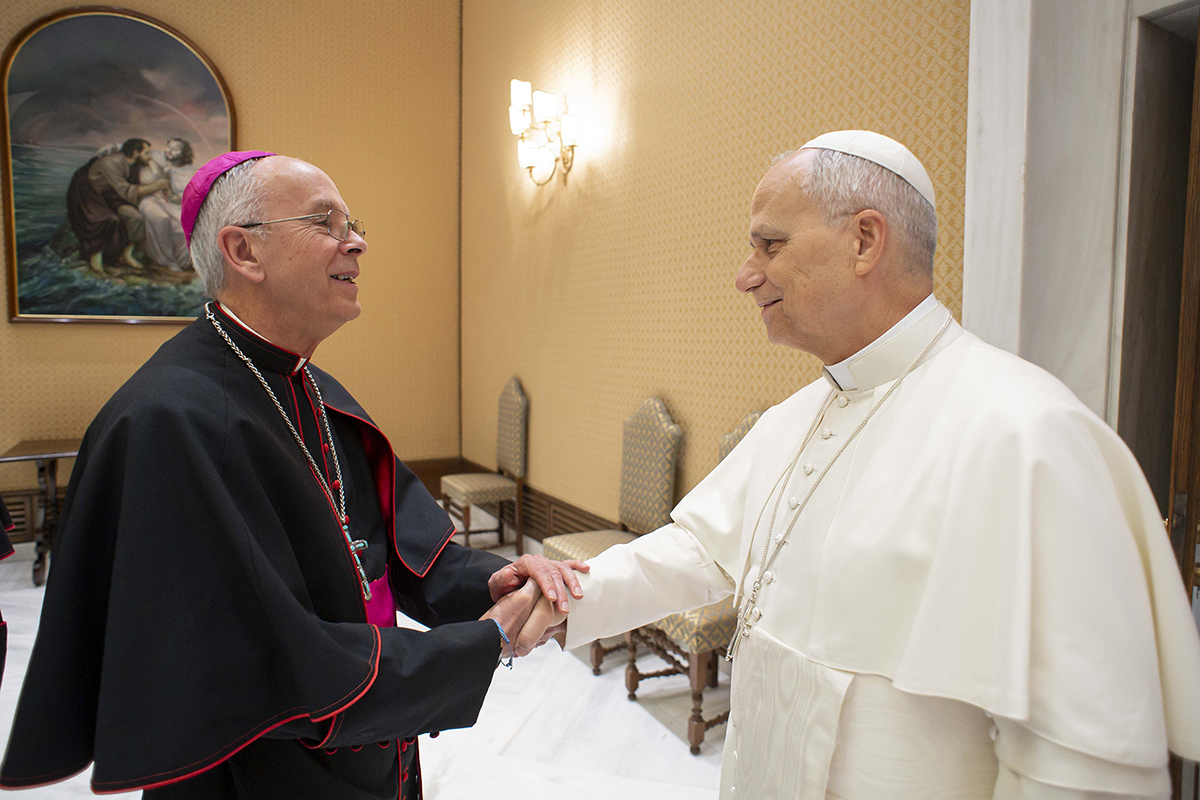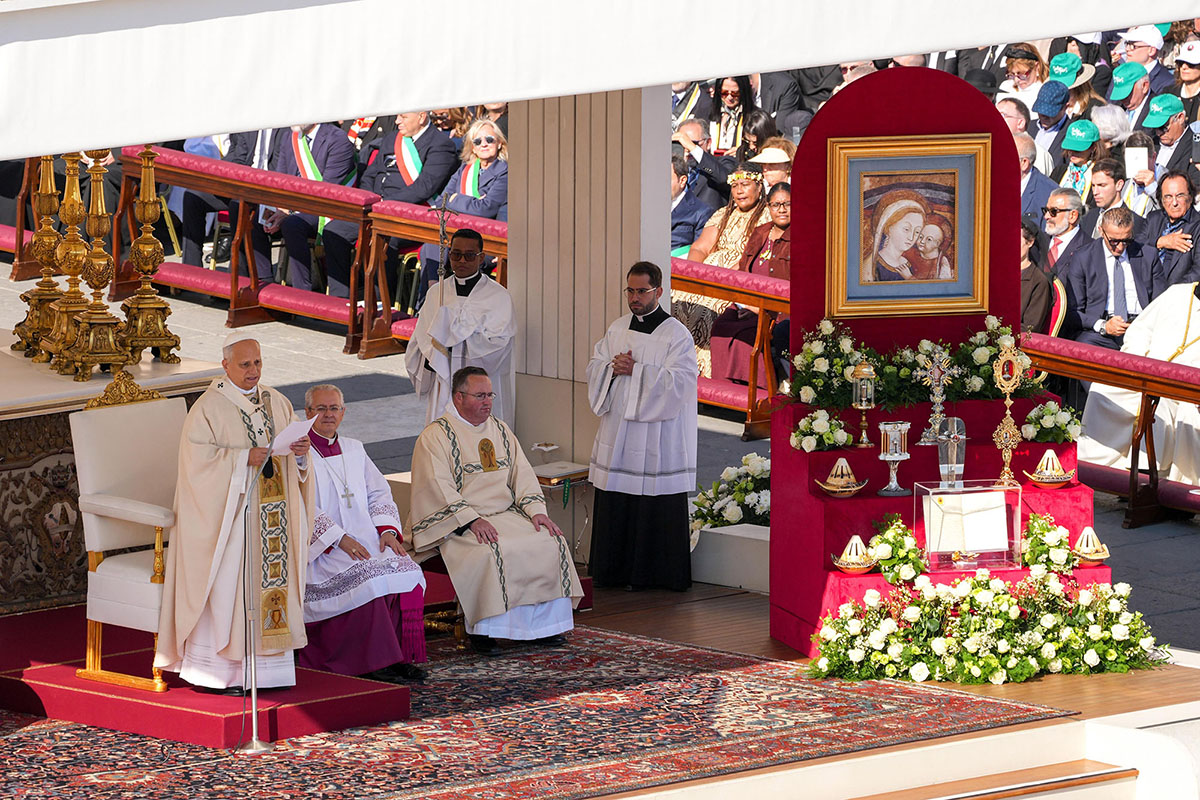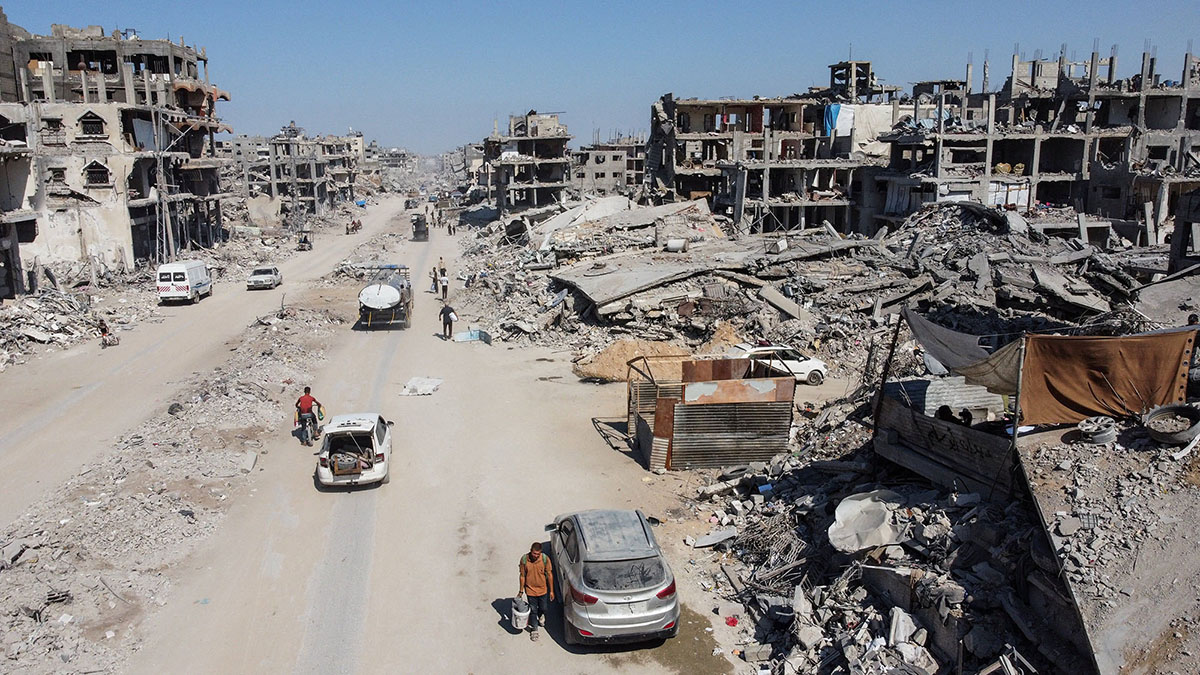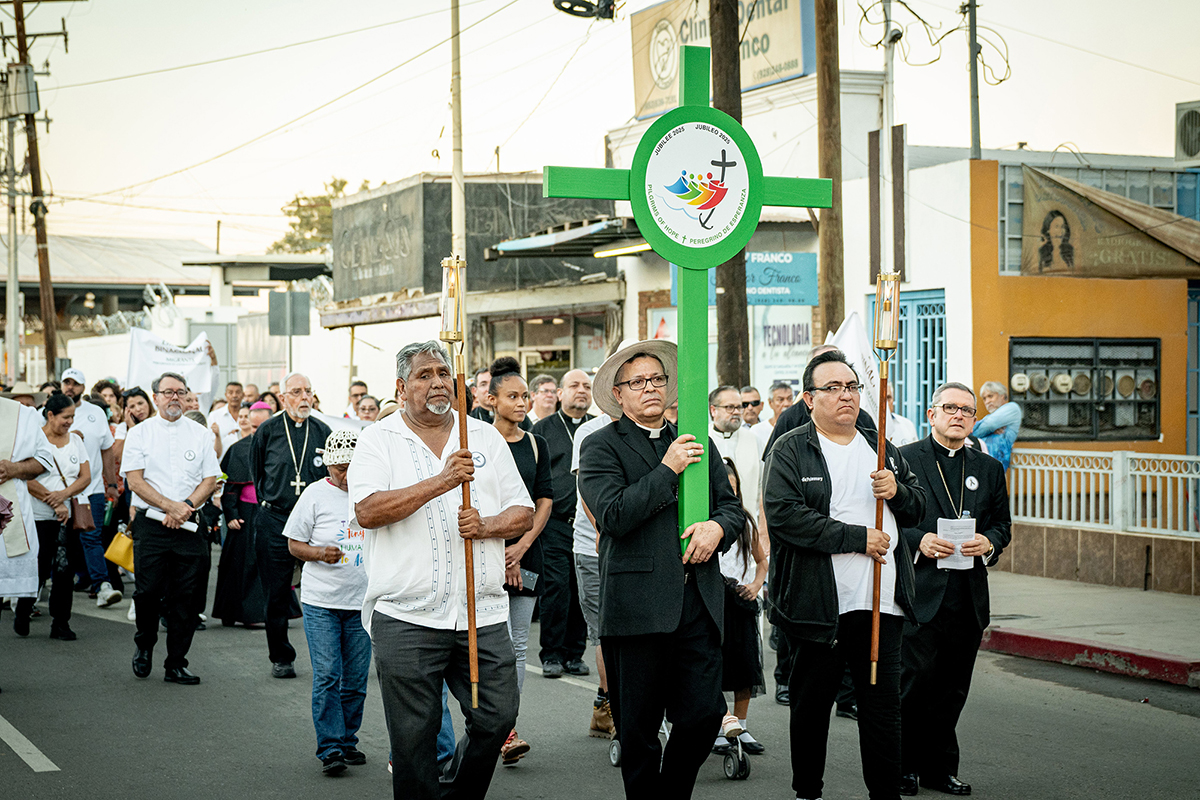On historic Corsica trip, pope says faith and culture need not clash
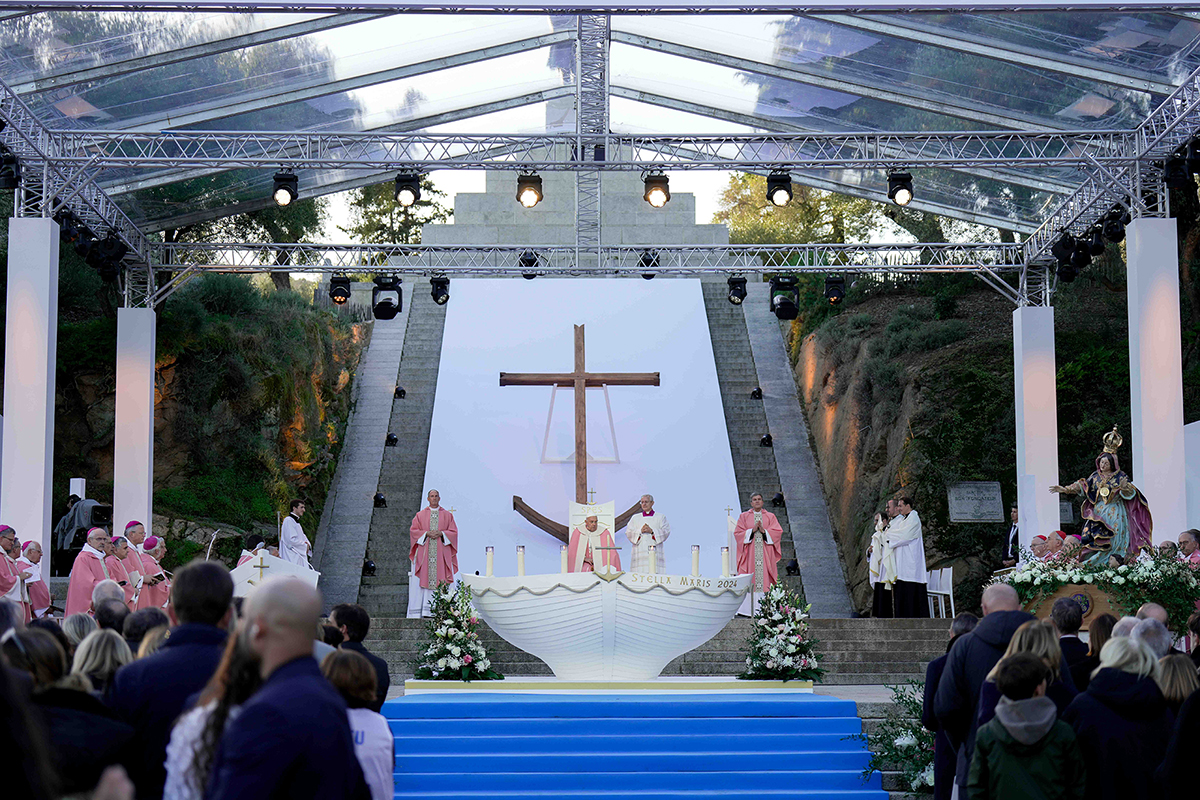
Pope Francis became the first pontiff to visit Corsica
AJACCIO, France — Pope Francis became the first leader of the Catholic Church to set foot in Corsica, the birthplace of Napoleon Bonaparte, praising the French island’s heritage of popular piety as a bridge between faith and secular culture.
As people become increasingly indifferent toward God’s presence and word, particularly in Europe, the Church must avoid hasty and ideological judgments that “would pit Christian culture and secular culture against one another,” he said in a speech Dec. 15, closing a conference on popular religiosity in the Mediterranean region.
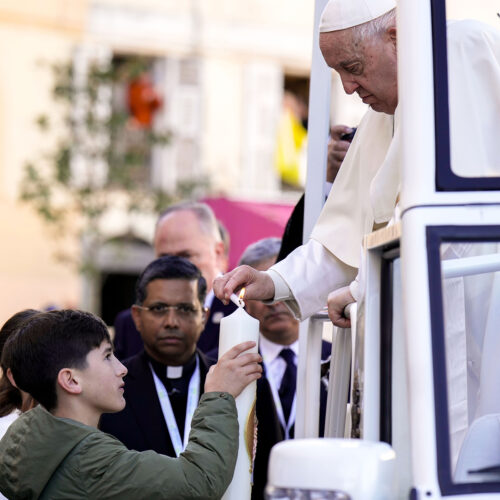
“Instead, it is important to acknowledge a mutual openness between these two horizons,” the pope said, noting that expressions of popular piety — devotional practices such as processions or praying the Rosary in common — evoke the Incarnation by expressing the Christian faith in a specific cultural context while engaging people “who are on the threshold of faith.”
“Although they may not practice their faith regularly, popular piety enables them to experience their roots and affections, as well as to encounter ideals and values that they find useful for their own lives and for society,” he said.
Pope Francis began the 47th international trip of his pontificate by arriving in Ajaccio after a 75-minute flight from Rome; he was scheduled to spend just 10 hours on the island.
Speaking at the conference in France, which enshrines the separation of religion and civil society in the first article of its constitution, Pope Francis called for an “evolving and dynamic” concept of secularity that is “capable of adapting to different and unforeseen situations and of promoting constant cooperation between civil and ecclesial authorities for the benefit of the whole community.”
Expressions of popular piety, he said, can nurture “constructive citizenship” in a secular society by spurring Christian groups, such as Corsica’s confraternities, to cooperate with civil institutions to perform good works.
Confraternities developed in Corsica with the encouragement of Dominicans and Franciscans ministering on the island in the 16th century. Today, they serve as associations of laypeople dedicated to charitable work and religious devotions.
Despite a decline in the proportion of French citizens who identify as Catholic, involvement in confraternities in Corsica is growing. A study from the University of Manchester said that some 50 previously defunct confraternities on the island had been resurrected between 1980 and 2000, and that attendance at devotional events organized by confraternities steadily grew in the following years.
According to Vatican statistics, about 81% of Corsica’s almost 344,000 inhabitants are Catholic.
After closing the conference, Pope Francis met with Corsica’s local Catholic community in the Cathedral of Our Lady of the Assumption — where Napoleon Bonaparte was baptized in 1771.
“You are few in number, you do not have abundant resources, you do not always work in an atmosphere that is open to receiving the Gospel message,” the pope told local bishops, priests, deacons, consecrated persons and seminarians gathered in the cathedral. “Yet this poverty is itself a blessing.”
The Christian message depends “not on human abilities but above all on the Lord who always works with the little that we are able to offer Him,” he said, encouraging Church workers to carve out intentional time to connect with themselves and God.
“We ought to be concerned about those people who are always on the go,” the pope said, “always at the center of attention, and perhaps through overzealousness never settle down, never take a moment for themselves.”
Danielle Auguri-Ottavi, prioress of the Our Lady of Mercy confraternity in Ajaccio — one of just two all-female confraternities on the island — was dressed in blue and white along with 23 of her “confrères” to greet the pope outside of the cathedral.
She said that the entire island experienced “immense joy” when the pope announced his trip to Corsica. Her confraternity spent a week decorating streets in Ajaccio for the pope’s visit.
The natives of the island have an “ancestral bond” with Catholicism, which can serve as an example for the rest of Europe and the world at a time when many people are leaving their faith aside, Auguri-Ottavi said.
“Corsicans are very strong in their faith,” she said. “Faith is in our blood.”
Sixteen-year-old Cyrielle said she felt privileged to see the pope in her hometown, a “once in a lifetime experience.”
A native of Corsica, Cyrielle said that religious practice on the island is different from the rest of France since here, “parents really transmit the faith to the next generation.” Ultimately, Catholicism is “something that unites all of Corsica,” she said.
Pope Francis became the first pontiff to visit Corsica
Subscribe to Read All St. Louis Review Stories
All readers receive 5 stories to read free per month. After that, readers will need to be logged in.
If you are currently receive the St. Louis Review at your home or office, please send your name and address (and subscriber id if you know it) to subscriptions@stlouisreview.com to get your login information.
If you are not currently a subscriber to the St. Louis Review, please contact subscriptions@stlouisreview.com for information on how to subscribe.

